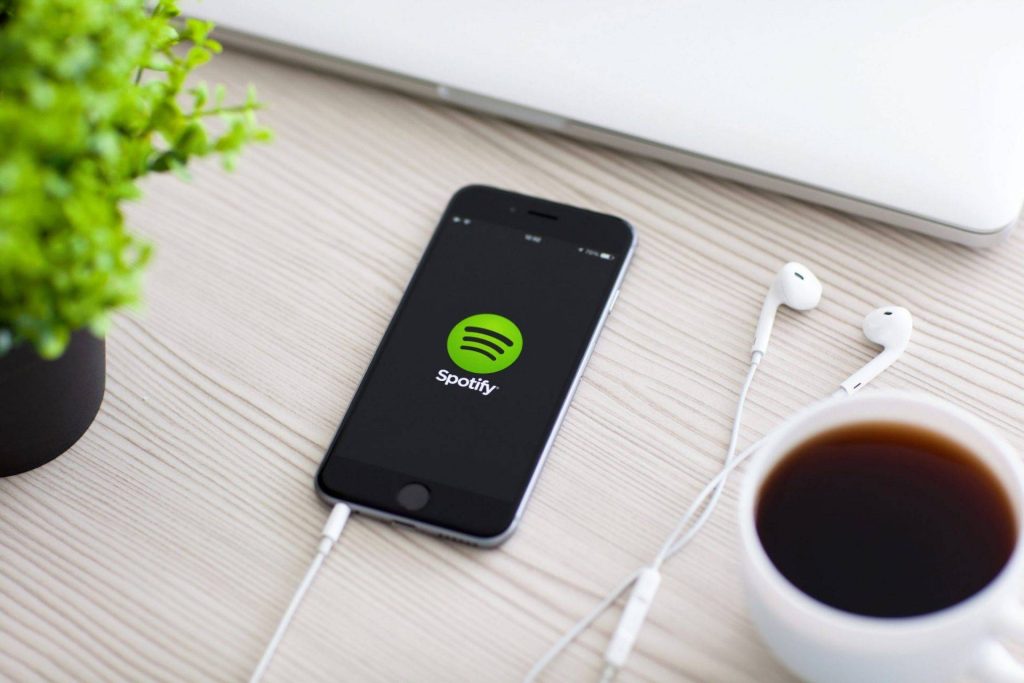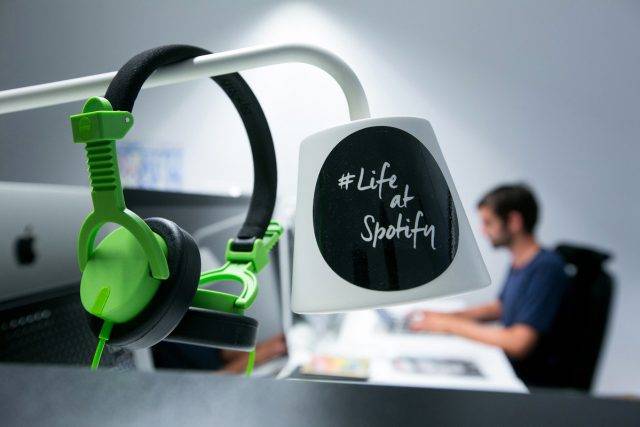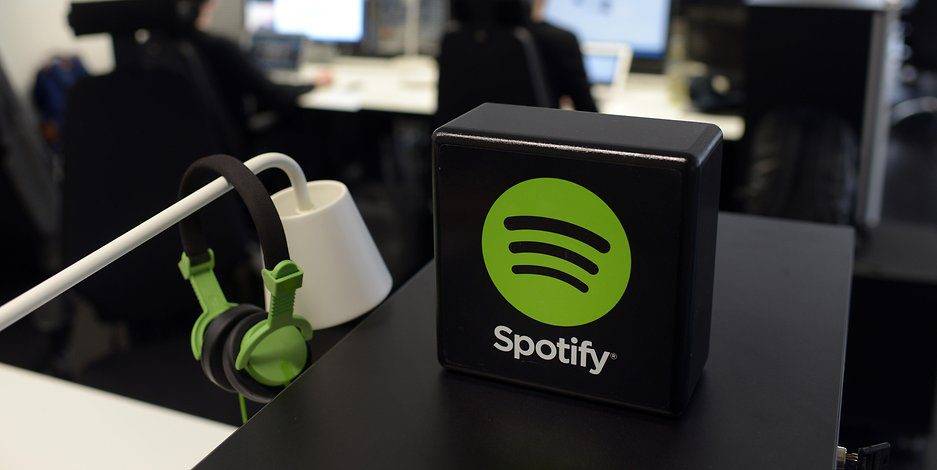Why Spotify Is Still Unavailable In Nigeria & How It Has Many Users In A Country Where It Is ‘Unavailable’

Popular music streaming company, Spotify, which currently boasts over 200 million monthly active users and more than 100 million paying users, first touched down on Africa in 2018. And it perhaps shocked many when the platform chose South Africa over Nigeria as its first port of call.
It came as a shocker because Nigeria is the undisputed capital of music in Africa. A lot is happening in South Africa on the music front too and they surely score points for effort, but there’s hardly any argument around the fact that no other country has put African music, particularly Afrobeat, on the map like Nigeria.
So, it was sort of baffling that the Swedish music streaming giant opted for Mzansi over Naija when the latter seemed like the best candidate for a no-brainer.
What Spotify Said About Why They Chose South Africa Over Nigeria
As at the time of launching in South Africa, Michael Krause, Managing Director for Europe, Middle East, and Africa at Spotify, suggested that launching in South Africa made more business sense and the company was doing what’s best for it at the time.
“In terms of other African countries, we are always looking at the market for when is the right time in terms of catalogue, connectivity, etc,” he said. “Africa is a great continent and we are definitely looking to launch in more countries. Our product is mobile-centric and this is why we chose to start our journey here.”
Claudius Boller, Managing Director for Middle East and Africa at Spotify, argued that the company chose South Africa because of several reasons especially its developed music market.
“Spotify takes its time to make sure everything is in the right place on the local landscape, so we need to make sure that we have almost all the music content that the local music fans want in a country.
“We need to make sure that people can connect and consume music on a large scale. We believe strongly that now the time is absolutely right,” Boller said.

He supported his company’s decision by referencing the International Federation of the Phonographic Industry (IFPI), which ranked South Africa’s music industry 30th based on its recording business, in the 22nd spot for physical CDs, and 38th for digital music.
Spotify also hinted at launching in other African countries in the future (it has since launched in Morocco) but there’s no definite timeline on its African expansion plans.
So, there you have it — the narrative from the Spotify camp is that while Nigeria is the undisputed king in terms of musical content and worldwide acclaim, that doesn’t necessarily translate to positive positive outcomes on the business end of things.
On the first anniversary of its arrival in South Africa, Boller told Forbes that things have pretty much been great.
“One year on, it’s been a blast. We are extremely excited.” Although Spotify didn’t disclose any figures, Boller remarked that user numbers were exceeding what had been expected by far.
Spotify appears to be gaining traction in South Africa — one of the world’s fastest-growing music streaming markets — having worked with well-known music festivals in South Africa, like Oppikoppi, Rocking the Daisies, and the Cape Town Jaz Festival, and having struck around 2,000 software and 400 hardware partnerships in the country while working closely with labels and artist directly.
So, Why Is Spotify Avoiding Africa’s Most-Valuable Music Market?
A host of reasons can be put up for why Spotify is still biding its time with regards to launching in the most prosperous music market in Africa.
It is clear that since the music users listen to on Spotify is owned by record labels, the platform only sells that music content belonging to the record label to users in exchange for subscription costs and advertisement. However, the record labels determine what countries their music can be played in via Spotify.
One school of thought opines that since Spotify is in the business of selling advertisement slots, they need to make sure that when they launch in a country, they have the rights to play a lot of the music that the consumers in that country will like, so they can charge advertisers a premium to advertise their products on Spotify in that country.

By hopping on this train of thought, it can be surmised that Spotify is not available in Nigeria yet because they have not acquired sufficient rights they need from record labels to provide all the great songs Nigeria will like that will guarantee them enough users in the region to make commercially viable sense for them to make enough money via local ads in Nigeria.
Another narrative talks up licensing and regulation as the bottlenecks, citing difficulties in reaching agreements with record labels/artistes, as well as coming to a head with the regulatory institutions.
Look no further than Jason Njoku’s failed music streaming venture, Iroking, for the full lowdown on how rights negotiations and regulation by government institutions can bring such platforms to their knees.
And then there is the more popular rhetoric about poor internet connectivity and the high cost of mobile data as impediments to the progress of streaming platforms in Nigeria.
“So you mean, after I pay for subscription, I will still use my data again?” That’s a common complaint in Nigeria. Throw that in with the prevailing dire economic situation and it’s easy to see why many people can’t even comfortably afford robust internet subscriptions not to mention paying around NGN 1.5 K (USD 4.00) monthly just to play exclusive content.
No doubt, music streaming is gaining popularity in Nigeria. Platforms like Apple Music, Boomplay, Deezer, and even Spotify (which is supposed to be ‘unavailable’ in Nigeria) are becoming popular among the young and the elite. But it appears it hasn’t become popular enough for Spotify to ‘officially’ launch in the country.
How Does Spotify Have So Many Nigerian Users Despite Being Unavailable In Nigeria?
When Spotify first launched in Africa via South Africa, it already had more than 35 million songs including that of many Nigerian artistes including Wizkid, Davido and Tiwa Savage that free users and subscribers could stream.
Currently, the streaming service is available in 79 countries, including the Middle East, North Africa and India, offering its global community of 232 million music fans access to more than 3 billion local and international playlists.
Even though Nigerians in Nigeria could not and still can’t ‘legally’ use Spotify, Nigerian artistes made their content available on Spotify to target their fans that are in countries where Spotify is available.

Data on the number of Nigerians who pay to stream music is hardly available. Plus the streaming companies with operations in Nigeria are coy on this matter — they all typically disclose their number of active users but not the number of paying users.
Oddly, an active user is typically defined as anyone who uses the app more than once after downloading or opening an account. So, the active users’ data doesn’t exactly say much.
There is no available data on the number of people in Nigeria using Spotify — especially as it is technically illegal — but it’s safe to assume that it is a sizeable number. Simply put, Spotify has a good number of users in Nigeria even though it is not available in the country.
So, how come? Well, Nigerians are availing themselves of the fantastic tracklists on Spotify by downloading and installing VPN (virtual private network) apps and setting their IP addresses to the US or UK or any other location where Spotify is operational.
Then they proceed to download the APK version of the Spotify app from any APK sharing site and install after giving the appropriate permissions. As seen in this illustration, it’s a pretty simple process.